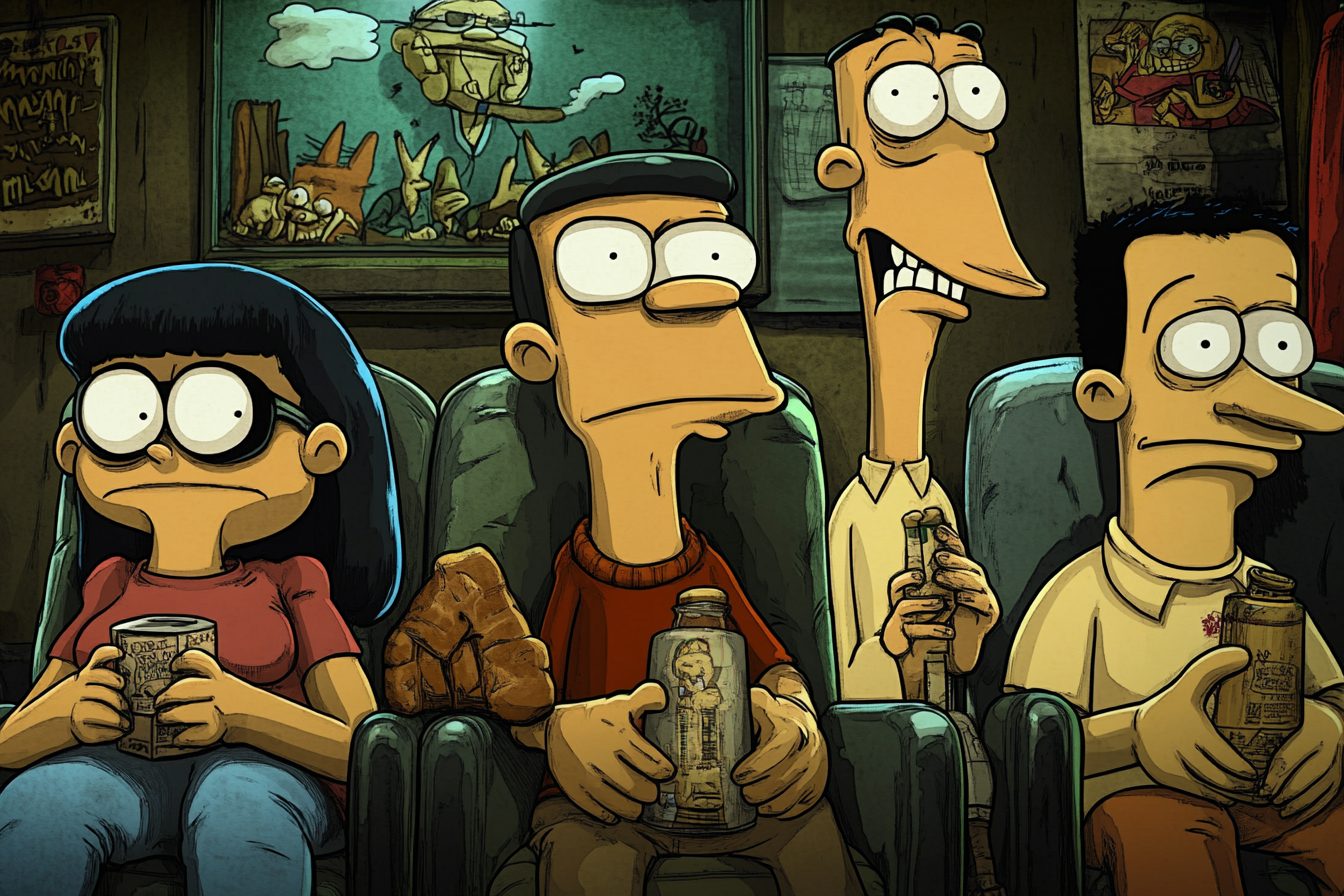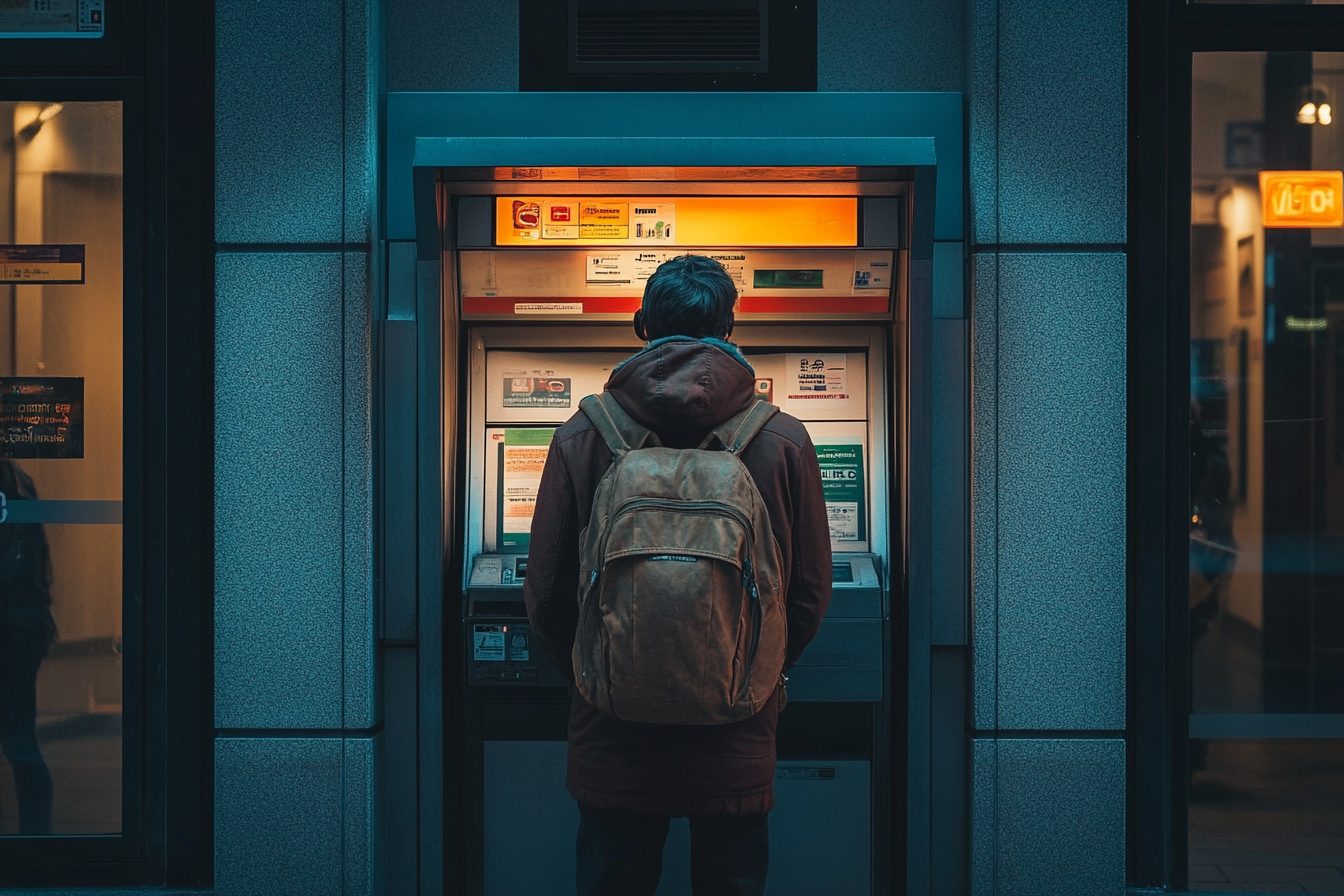Yesterday afternoon, I found myself in that well-known limbo called the express checkout line at Fairway Market. The sign, hanging from the ceiling like some mocking god, clearly read “15 ITEMS OR FEWER,” in a font large enough to see from orbit. And yet, there I was standing, with my one carton of milk, watching the woman ahead of me unload what looked to be supplies for the coming of the next World War.
I counted in my head, the same way one might count to ten when trying not to lose it. One, two, three… frozen pizzas.
Four, five… boxes of cereal. Six through twelve…
Various canned goods. By number twenty-seven—a family-sized bag of chicken thighs—I had developed a facial tic that I’m positive will necessitate a trip to the doctor. This is not an isolated incident.
This is contemporary warfare. The express checkout line represents one of the last bastions of the social contract, a simple agreement we’ve made as a society: if you have few items, you get expedited service. The math is elementary.
Five people with three items each will move through a line faster than five people with thirty items each. A child could understand this. And yet, here we are, watching as Barbara from accounting empties her cart with the leisurely pace of someone who believes time is a theoretical concept that applies only to others.
The express line violators make for an interesting study. They’re complex and seem to consist of several distinct subtypes. There’s “The Oblivious,” those who genuinely don’t notice the sign or can’t count past ten.
(I almost pity them. Almost.) There’s “The Entitled,” those who see the sign, understand that a rule exists, but believe it applies to those of lower status. (This is also typical behavior for someone parking in a space reserved for the physically disabled.) And on rare occasions, because some humans are hardwired to be undesirable, one runs into “The Jerks.” Who are these people?
Most insidious is ‘The Rationalizer’—the person who performs Olympic-level mental gymnastics to justify their transgression. ‘Well, these six yogurts are really one item because they’re the same brand.’ Or, ‘The sign says fifteen items, but it doesn’t specify size, so my twenty-four pack of toilet paper counts as one.’ I’ve witnessed a man argue that his cart of thirty-two distinct groceries should count as fifteen because some were ‘pairs.’ Sir, two different flavors of Pringles do not constitute a ‘pair’ any more than your left and right shoes are a single item. The waiting is bad enough, but the internal struggle is worse.
It is difficult to decide what to do. Should I become That Person who tells everyone what to do and enforces the rules they are supposed to follow? Or should I keep my mouth shut and my temper under control, which might be harder for me than it is for anyone else?
In my head, I conduct a bizarre sort of debate. I know I couldn’t win if I tried, but I try anyway. Last summer, I finally cracked.
After twenty minutes, watching a man offload an amount of groceries that could feed a small nation, I cleared my throat and pointed to the sign. “Excuse me,” I said, in what I took to be a reasonable tone, “this is the express lane. Fifteen items or fewer.”
He regarded me with the expression of someone who has just been asked to offer up their firstborn to the checkout gods.
But mostly, the groceries were small, a lot of which should have been in the place they had named: “express” checkout. Not just because of the law of marginal utility, which states that the smaller the thing, the less you should ask the checkout people to express it when you pay for it. But also because it is express checkout, which you are supposed to use when you’re in a hurry.
You can’t be in a hurry when you’ve got an 80-pounder in front of you. The cashier—young, with the dead eyes of someone who has seen too many of these showdowns—said nothing. She is Switzerland in this fight—neutral to the point of catatonia.
I don’t blame her. Minimum wage isn’t quite enough to compensate for being the arbiter of grocery store justice. What’s especially infuriating about violating the express line is that it’s not just a matter of time.
It’s a statement of principle. The principle that even small acts of social courtesy count for something. That when it comes to matters of public space, a little consideration for your fellow human goes a long way.
When you don’t stop at the express line and you and your groceries spill over into the next register, it sends a signal—like all the signals we send when we don’t keep these little social contracts—that says: “My time is more important than your time. My convenience is what really counts. And, oh yes, we are living in a society, but I seem to have forgotten that little detail.”
On more than one occasion, I have forsaken my position in line and moved to a standard checkout, even when it meant waiting longer.
There is something about the express line torturer that feels worse than just being in a slow-moving regular line. It’s the principle of the thing. It’s watching someone cheat at a game we’ve all agreed to play and get away with it.
The express line is not for you if your cart is not express-worthy. I find it deliciously ironic that I have spent more time contemplating express line violators than I have spent in express lines. But isn’t that the essence of modern annoyance?
The actual inconvenience is often small, but the symbolic significance of these tiny transgressions is huge. Over the years, I’ve created methods for dealing with the express lane that are now second nature to me. When I’m approaching the express lane, I assess the contents of the carts in front of me and behind me.
I look for the no-doubt imminent violations of the 15-item rule. If I see a 15-plus cart anywhere near the express lane, I either skip over that express lane entirely or I get into the neighboring express lane. I visually assess the 15-item rule and the no-doubt violations of the rule like I’m some kind of Olympian podium judge.
Yet, this still occurs, even with all my best efforts. It’s a dark reality of life, almost akin to being in the underworld. Take my Tuesday, for instance: I had the misfortune to enter the express lane at the same moment as a man who had apparently never used a divider before.
Instead of stopping at his side of the divider, he just kept going. And going. And going.
It felt like a trickle effect. Meanwhile, I was silent. And then I wasn’t.
There are times I ponder the outcome of a scenario where everyone followed the rules. Imagine, if you will, every individual with more than fifteen items dutifully wheeling their cart to a regular checkout line. Would the earth stop spinning?
Would the universe implode? Or would we simply experience the delightful and unprecedented occurrence of a truly express express line? The deeply cynical part of me—let’s be honest, that’s most of me—thinks this will never happen.
The grocery express line violation is far too entrenched. It’s as much a part of the experience as having your one stupidly unhelpful cart wheel that turns pushing your cart into both a test of physical strength and a new kind of mental challenge. You know what I mean (I hope).
Also, it is definitely fungal, so you should wash your hands after. And yet, I remain quietly outraged. Because if we give up on the express line, what’s next?
Total anarchy? People driving on the wrong side of the road? Cutting in line at the DMV?
These small rules matter. They’re the difference between civilization and chaos. Thus, I will keep standing in the express line, clutching my solitary carton of milk, silently counting the items of the person in front of me, and hoping that I might just this once witness the miracle of someone ahead of me realizing they have too many items and of their own accord moving to another line.
Until that time, I’ll be right here, honing the craft of the disapproving stare and working through the stages of the grief for the decline of Western civilization, one express line infringement at a time





